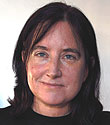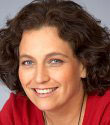Who's more selfish: people who'd rather let others do the work of furthering the human race, or people who think it's fine to bring more children into an already over-crowded world?
Olivia Rose-Innes, Health24's EnviroHealth Editor, speaks up for the childfree, while Adele Hamilton, Health24's Editor, counters from the parent camp.
The gene stops here!
Olivia
Breeders: an unattractive word, associated with uncontrolled, rabbit-like proliferation. Regrettably sometimes used by people who don’t have children when they’re feeling fed up with people who do.
Very rude of us, and yes, rather childish too. But then, voluntarily childless people – or the more upbeat childfree – have reason to feel fed up, maybe even reason to resort to occasional puerile name-calling.
We're fed up with the absurd ongoing societal disapproval of our decision not to breed, sorry, procreate. With being pitied for our ostensibly unfulfilled, barren lives; with being suspected of turning our backs on what is considered intrinsically life-affirming, natural and Human; and, most unfair and ironic of all, with being labelled selfish.
When really, surely what we deserve are frequent pats on the back and never having to pay for our own drinks.
Because non-conception is hands-down one of the most effective acts an individual can perform to help avert the greatest crisis of our time – make that the greatest crisis of all time: global environmental destruction and the end of our species, never mind all the others.
Selfish? Hey, we’re doing it (or rather not doing it) for the planet.
Too many babies is not a life-affirming or natural state of affairs, though it is a depressingly human one. And there are Too Many Babies. We stand today at close on 6.8 billion beings, each hungering for his or her share of an ever more finely divided pie of desperately strained resources. By mid-century, there will be a frankly terrifying 9+ billion of us.
And if you think with your two offspring all you’re doing is quietly replacing yourself and your partner, no harm done, think again please.
A baby born into privilege will grow up to demand a much bigger slice of that pie than his or her third-world counterpart. He or she will, even in an environmentally conscious home, ingest fancy foodstuffs, enjoy costly high-tech health care, go through all manner of changes of clothes and toys and entertainments, travel far in various motorised vehicles and live long, resource-munching and polluting and billowing greenhouse gas all the way. In terms of sheer numbers, overpopulation is primarily a developing-world phenomenon. In terms of “consumption overpopulation”, no-one does it like the leisured classes.
I feel pretty fervently about this save-the-planet stuff, and it's a serious reason I haven’t had children. But, to be honest, it’s probably not the one that ultimately swayed my decision.
I think the real reasons people choose to procreate or not are more mysterious. Hard as it may be for some of our detractors to believe, I, and growing millions of like-minded others, just feel, on some fundamental, cellular level, that it simply isn’t our destiny. That realisation is cause for commendation, not a cause to be browbeaten into reluctant conformity. To decide to be a parent, a tough enough job to get right, in these times, with the challenges facing us, you should really, really want to be one.
The world can have a few more babies, sure. Let’s just make sure each one of them is truly wanted.
Population stats from the United Nations World Population Prospects 2008 Revision
Why breeding is a must
Adele
The Earth would probably be better off if the human race had never evolved. But we did, and here we are, loving the planet, abusing it, and generally behaving like a bunch of little kids at a party: coloured paper and bodily fluids trailing everywhere.
Does it serve the planet that I have produced another two humans? I believe it does. For these are intelligent, caring and well-educated young people, who in their turn will make the right choices and recycle their beer bottles. Nature is built around replacement and replenishment of every species, and it is hubris to think that the human race is immune from this cycle.
Yes, there are individuals who I can’t help wishing would subscribe to the non-breeders’ credo, but those are usually not the ones who choose to stay childfree. In fact they are most likely to pop out a few children and then allow them to torment me by kicking the back of my seat in an aeroplane. But breed, humans must.
As it is we are facing a situation with an ageing population depending on a dwindling number of young, strong providers. According to a 2007 report by the United Nations, the global number of older persons is expected to exceed the number of children for the first time in 2047. In developed countries this landmark was already passed in 1998, says the report. And although these older persons are probably mostly well-off and healthy for now, they still need young people to keep society moving, from picking fruit to designing new systems of communication.
Even if you argue that all technological and scientific development should halt at once, youth is still necessary. Even the most nature-friendly culture needs people to bend down and pick up fallen fruit, and carry away the dead to be eaten by the jungle beasts.
I don’t think it’s selfish to decide to not to breed, good for you for making a thoughtful lifestyle choice. But please respect the role that we breeders play in keeping the world populated with fruit pickers and computer geeks who enable you to eat organic fruit for breakfast and download carbon-footprint advice. And if we give new generation the power to effect change, they may just be the saving of all of us, by finding better, more environmentally-friendly ways of doing things.
One day, when all the non-breeders are sitting in their recycled-wood rocking chairs, having developed gout from too much red wine and good living, I trust my children will be working hard to keep the Earth in good nick. For their children.
Stats from United Nations publication World Population Ageing 2007.
- Health24, updated November 2012
Photo of Adele by Shawn Benjamin
Read more:
Hello 7 billion




 Publications
Publications
 Partners
Partners















